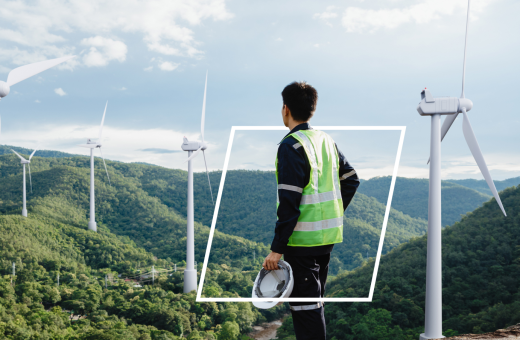Offshore Solar vs Offshore Wind
18 Oct, 202210 minutes
There’s no denying that the offshore energy industry has a strong future ahead.
Not only are we seeing record levels of investment and market growth across the entirety of the sector, but innovation has recently reached an all-time high (Source: Wind Power Engineering).
Ongoing advancements in technology have led to the existence of floating wind and our first offshore solar farm - the latter of which is expected to set sail from Belgium’s coastline next year.
Separately, these two achievements would be worth celebrating. Together, they are absolutely revolutionary, hinting at a bright light at the end of the talent crisis and resource shortage tunnel.
The logistics of offshore solar vs offshore wind
In the years ahead, energy firms no longer need to worry about the complications of securing long-term survivability.
The amount of attention our market has been generating in the past few months has been enough to eradicate uncertainty and give investors more and more confidence to make new deals.
Going forward, rather than focusing on the present, businesses should be able to concentrate their efforts on seizing the next opportunity that lies before them.
To do so, there are just a few questions they need to address, that pits solar and wind against each other as the world’s top energy solution (Source: Compare Your Footprint):
- Where will the market’s limited resources be diverted?
- Where will the available talent be drawn from?
- Which renewable energy is going to have a higher adoption rate?
- Which solution will be cost-effective for a profitable business?
The answers could lead businesses down a different path than the one they wander on today, chasing instant results in an increasingly complex environment. With government regulations getting tighter and tighter, the easier the work they undertake… the better.
The ongoing battle of offshore solar vs offshore wind
From a business perspective, both offshore solar and offshore wind have their strengths and downfalls.
The benefit of offshore wind
As it stands, it’s clear that offshore wind already has an advantage in the energy market.
With numerous live projects already spread around the world (plus hundreds more in progress) the existing presence is sure to support significant growth over the next few years.
The benefit of offshore solar
However, offshore solar farms are a shiny and new development, an innovation that many investors have taken notice of and want to contribute towards.
Following SolarDuck’s project launch in 2023, the offshore solar market could see a rapid boom in popularity (especially in countries with limited wind power). Why?
Another benefit of offshore solar
On average, floating solar farms can be designed and built in 8-12 months (Source: Eglinton Solar Farm). Then, pushing these platforms to sea would require very little manpower in what would likely be a fast and efficient process.
The disadvantage of offshore wind
Wind farms, on the other hand, can take anywhere between 6-10 years before being ready to operate (Source: Energy Council). From there, they then require extensive ongoing maintenance - which often proves to be costly and inconvenient.
That’s not to say they are without their advantages, though.
Another benefit of offshore wind
Having been around for years, there’s already a reliable supply chain pipeline for wind farms. The infrastructure to develop turbines has been previously established, and industry-wide efforts to attract talent are seeming to have a positive impact.
The disadvantage of offshore solar
The same isn’t true for offshore solar, which has a long way to come before it’s accepted widely as a viable solution for solving the world’s energy crisis. Plus, solar’s high requirement for lithium, an incredibly finite resource, could halt growth before it’s even started.
Our forecast for offshore wind vs offshore solar
At the end of the day, it’s impossible to predict the future.
However, we anticipate that both markets will see success in the coming years, to varying extents.
- Offshore wind will continue to develop all the recently approved projects and start to scale its capacity, delivering a reliable and sustainable source of energy to countries like the UK.
- Offshore solar will thrive in countries that report low average wind speeds, like Brazil, which will be paying attention to the SolarDuck project and could be eager to see what progress is made.
At some point in the future, there’s no reason that solar energy wouldn’t be able to compete with, if not rival, offshore wind (Source: Greenmatch).
Either way, our industry has some exciting opportunities laid out before us.
Hire offshore talent through Select Offshore
Identifying and attracting top talent is going to be a difficult feat for growing offshore energy businesses.
Instead of facing the challenge alone, consider benefiting from our expert headhunting skills and extensive network.
Select Offshore delivers maritime professionals who are reliable, communicative, and enthusiastic. We adhere to tricky deadlines to secure project success through:
- Executive Search
- Contract Staffing
- RPO Solutions
Our team strongly believes in celebrating each of the individuals we work with, dedicating time to find them desirable offshore placements.
Is the next one with you? Contact us now.


